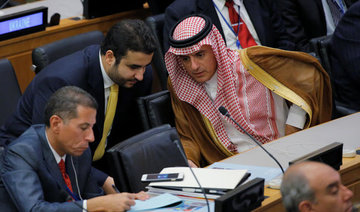RIYADH: With the launch of Vision 2030 and the National Transformation Program (NTP) 2020, Saudi Arabia has entered a new era of progress and prosperity which ensures integrated development in the Kingdom.
In recent years, Saudi Arabia has witnessed a series of developments in the fields of education, health, trade, communications, science and technology.
Launching Vision 2030 last year, Crown Prince Mohammed bin Salman described it as an achievable blueprint, which expresses long-term goals and reflects the country’s potentials and the projected future. It is a roadmap for economic and developmental action in the Kingdom.
Under this program, some governmental bodies and ministries underwent a restructuring process. This will enable them to perform their tasks, and expand their competencies to achieve a prosperous future and sustainable development.
Women are being given greater responsibility in society. The Shoura Council, which is a consultative body, has 30 women members out of its total membership of 150.
Recently, some female leaders were given highly responsible positions in public and private sector enterprises.
The education of women in the Kingdom has received a great deal of attention and this has allowed Saudi women to make definite strides toward achieving their ambitions in different fields.
The Saudi woman has emerged both at the local and international levels. Saudi women have excelled in the fields of culture and specialized research and their achievements have set records.
The King Abdul Aziz City for Science and Technology (KACST) plays a predominant role in the country.
KACST is a governmental scientific institution that supports and enhances applied scientific research. It coordinates the activities of government institutions and scientific research centers in accordance with the requirements of the development of the Kingdom.
It also cooperates with the relevant authorities to identify national priorities and policies in technology and science, so as to build a scientific and technological basis that serves development in agriculture, industry, mining and more. It also aims to develop national competencies and recruit highly qualified specialists to help develop and control modern technology to serve development in the Kingdom.
Its vision is to be a world-class organization in science and technology, fostering innovation and promoting a knowledge-based society in the Kingdom of Saudi Arabia.
For the first time in the Kingdom’s history, KACST recently produced three types of drones. The air drones, code-named Saqr 2, 3 and 4, are made of carbon and fiberglass and are characterized as light and durable to evade detection of radar and reconnaissance equipment.
The drones can be programmed from a ground-based control room. The newly created devices contain automatic control units, as well as logarithmic programs which can deal with and adapt to different wind speeds and temperatures, engine combustion, emergency landings, or climb or deviate from a flight path.
The drones will be used in cases of natural or environmental disasters, aerial photography, remote sensing and exploration, agriculture, border control and rescue operations.
In the health sector, there are more than 400 hospitals throughout the Kingdom which include some 125 private sector hospitals. Besides these hospitals, there are several medical cities and more than 2,000 primary health care centers.
During Hajj, the Ministry of Health alone deploys some 30,000 health officials to serve the millions of pilgrims who come to the two holy cities every year.
Education is a much-prioritized sector in the Kingdom. New schools are being built with state-of-the art technology to provide education to the growing population. The Education Ministry provides foreign scholarships to students who wish to pursue higher studies of their choice in major cities in the world in the UK, the US, Canada, Germany, Japan, Australia, New Zealand, France and India. There are more than 10,000 Saudi students studying abroad on government-funded scholarships.
There are some 39 universities in the Kingdom and some of them have achieved global recognition because of their state-of-the-art facilities.
The Princess Nourah University (PNU) is an example of the attention given to higher education for women. The attention started when the General Presidency for the Education of Girls established the first college for women in 1390 AH, corresponding to 1970 CE. The inauguration of more colleges followed, reaching 102, ranging from university colleges to intermediary and community colleges. These are found in 72 Saudi cities and include 600,000 students.
In Riyadh alone there are six colleges: The College of Education for Liberal Arts Disciplines; the College of Education for Scientific Disciplines; the College of Education for the Development of Teachers; the College of Social Services; the College of Home Economics; and the College of Fine Arts.
In 1427 AH, a royal order was issued for the establishment of the first university for women in Riyadh, under the supervision of the Ministry of Education. This includes the six colleges located in Riyadh, in addition to a number of new colleges established for the purpose of women’s education and development in the Kingdom.
Vision 2030 will take Saudi Arabia into the future, standing on the foundations of the past
Vision 2030 will take Saudi Arabia into the future, standing on the foundations of the past
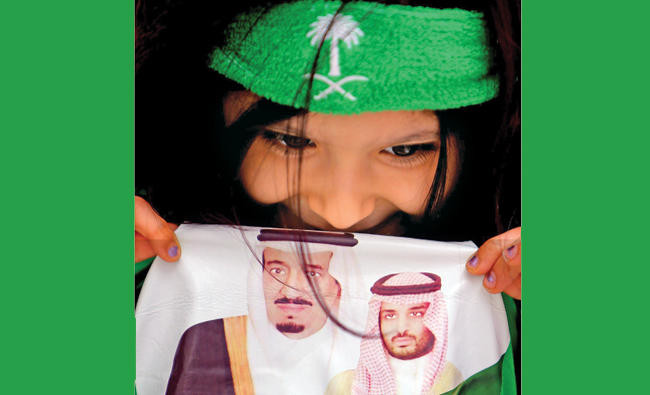
How conservation efforts are helping Saudi Arabia’s northern deserts bloom

- The Kingdom’s northern deserts are flowering once again thanks to heavy rainfall and national biodiversity rehabilitation efforts
- Once endangered, Silene arabica is now thriving, benefiting from reduced grazing and natural drought-resistant adaptations
RIYADH: Following an unusually wet season, Saudi Arabia’s northern desert has erupted into a sea of wildflowers. Among the most striking sights is Silene arabica, a rare species once on the brink of extinction, now thriving thanks to a national commitment to conservation.
Part of the Caryophyllaceae family — commonly known as the “pink family” — Silene arabica is one of 3,000 species within the group, which also includes the sun-loving Dianthus and the delicate Gypsophila, better known as “baby’s-breath.”
What sets Silene arabica apart is its remarkable resilience. Unlike its thirstier relatives, this hardy desert dweller thrives in clayey soils and stores water internally, making it uniquely suited to Saudi Arabia’s arid northern border region.

Its natural range spans desert and semi-desert ecosystems stretching from North Africa to southern Iran, but this year’s extraordinary bloom has made it a poster child for Saudi Arabia’s expanding efforts to protect its native flora.
Beyond Silene arabica, countless other wild plants are enjoying a resurgence — the result not only of rainfall, but also of determined national efforts to rehabilitate and safeguard the Kingdom’s biodiversity.
One of the driving forces behind this green renaissance is the Saudi Arabia Botanical Society, co-founded by Munira Al-Hazani and Joshua van Alstine. Al-Hazani is the first woman in the world to found a national botanical society.
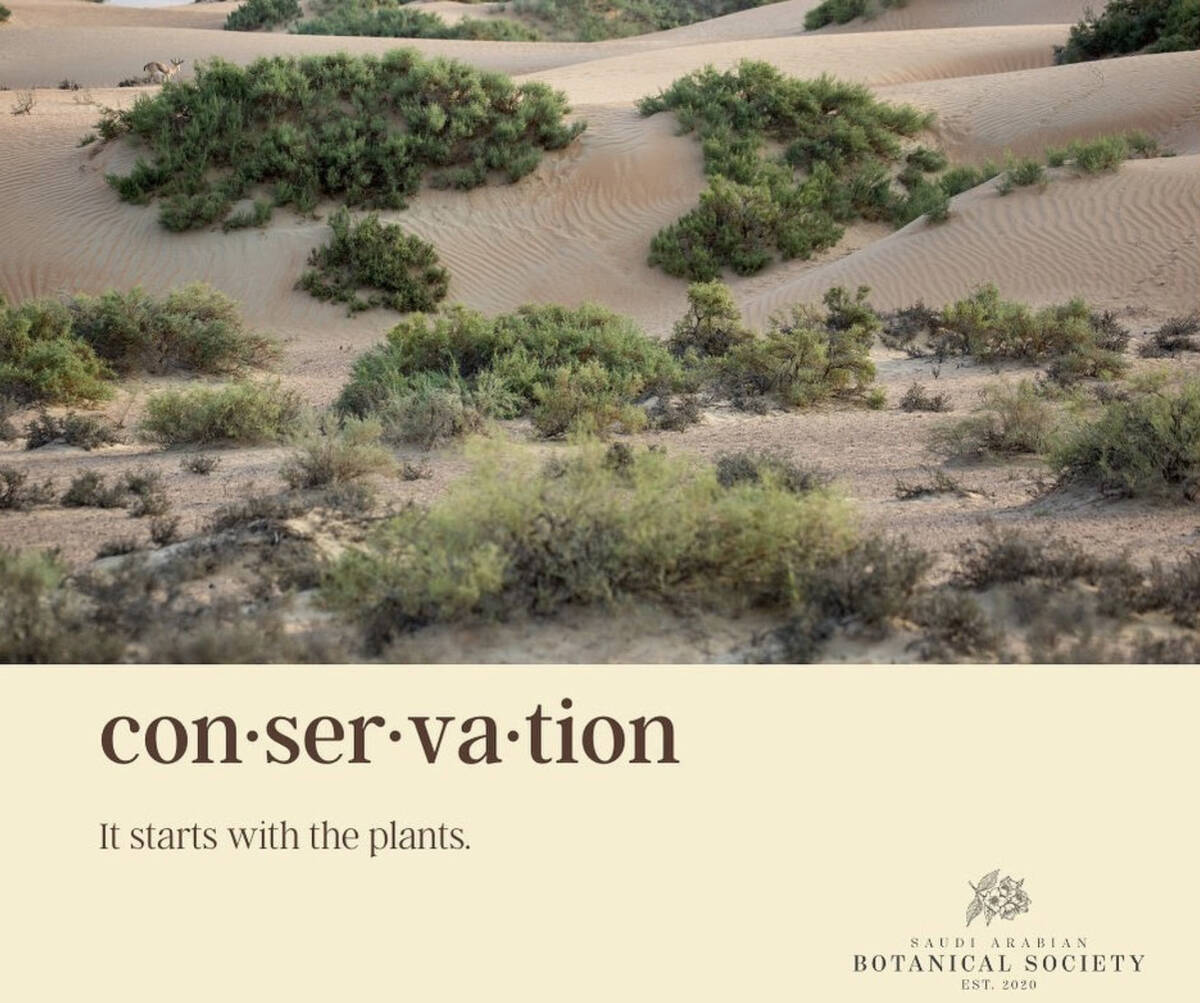
The organization’s goals include preserving native species, building a national botanical garden and institute and cultivating environmental awareness across the country.
“We are doing this as a service to human beings through nature,” Texas-born van Alstine told Arab News. “We are not doing this only to walk around and say, ‘we do plant research, we do plant conservation.’ We are doing this to make life better for humans.”
A longtime admirer of Saudi Arabia, van Alstine said his passion for the Kingdom’s natural environment led him to become part of its sustainable development journey.
“I really want to make the biggest impact possible,” he said. “I thought, how can I do something, really, in the service of the Kingdom, and I thought of serving Saudi Arabia’s soil and plants. I really see Saudi Arabia becoming the world’s first fully green state.”
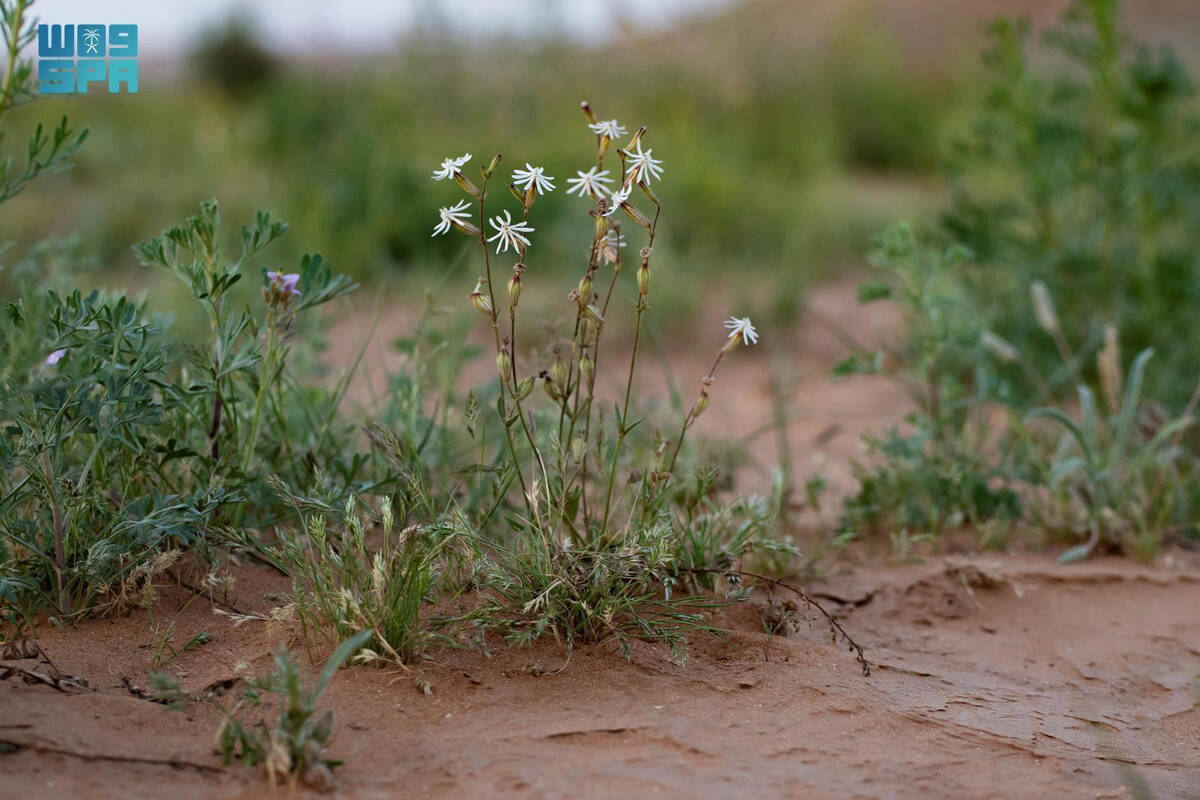
Among the native species championed by the society is Horwoodia dicksoniae, commonly known as Saudi lavender. Yet protecting these desert-adapted plants requires an understanding of their unique survival strategies — and the fragile conditions that sustain them.
“What do plants need? Plants need carbon in their soil, they need minerals in their soil, and they also need to be in a place where water is going to be stored after it rains,” said van Alstine.

This is where the desert’s hidden geology plays a critical role. “We see native plants in a lower area, rocky areas, in the desert,” he said.
“No matter where you are in the desert, if you see native plants, there is most likely going to be rocks either under the sand or above the sand, but you will see these plants are kind of growing in areas that don’t get very much wind, in comparison to the rest of the desert … and they have some sort of shade from the rough desert conditions.”
These rocky pockets act like underground rain barrels, collecting water that can sustain plants through long dry periods. Native species like Silene arabica have evolved long, deep roots to reach these hidden reserves.
DID YOU KNOW?
• Silene arabica is typically found in areas that retain rainwater, such as valleys and clay soils.
• The native plant species flowers during the spring and after periods of heavy rainfall.
• Caryophyllaceae has 89 genera and 3,000 species found all over the world.
But resilience alone is not always enough. Over the years, Silene arabica has become increasingly scarce, in large part due to overgrazing. “That is what made them disappear. There is overgrazing,” said van Alstine.
Grazing animals, especially camels, are drawn to the flower’s grassy stems and white blooms. Their popularity among foragers has taken a toll on the population. In response, the National Center for Vegetation Cover has taken steps to limit grazing in sensitive areas, allowing native species the chance to recover.

The impact is already visible. From plains to rocky valleys, wild plants are reclaiming their place in the landscape — a transformation that is being noticed not just by scientists and conservationists but by residents and visitors alike.
Silene arabica may be one of the stars of this year’s desert bloom, but it is far from the only beneficiary. Thanks to coordinated efforts to curb destructive practices and promote responsible land stewardship, Saudi Arabia’s desert is alive once again with color and life.
And for those working to make it happen, this is just the beginning.

Silver handicrafts reflect Saudi Arabia’s cultural diversity and artistic heritage

- Young Saudi women are increasingly selecting silver accessories for weddings and national celebrations due to their distinctive and attractive appearance compared to contemporary jewelry, according to Al-Awlaki
RIYADH: Silver handicrafts continue to highlight the Kingdom of Saudi Arabia’s rich cultural diversity, reflecting elegance, luxury, and the unique artistic craftsmanship of Saudi artisans.
The craft of silver jewelry holds deep historical significance, and the designation of 2025 as the “Year of Handicrafts” has renewed interest among young women and artisans, turning traditional silverwork into a modern fashion trend.
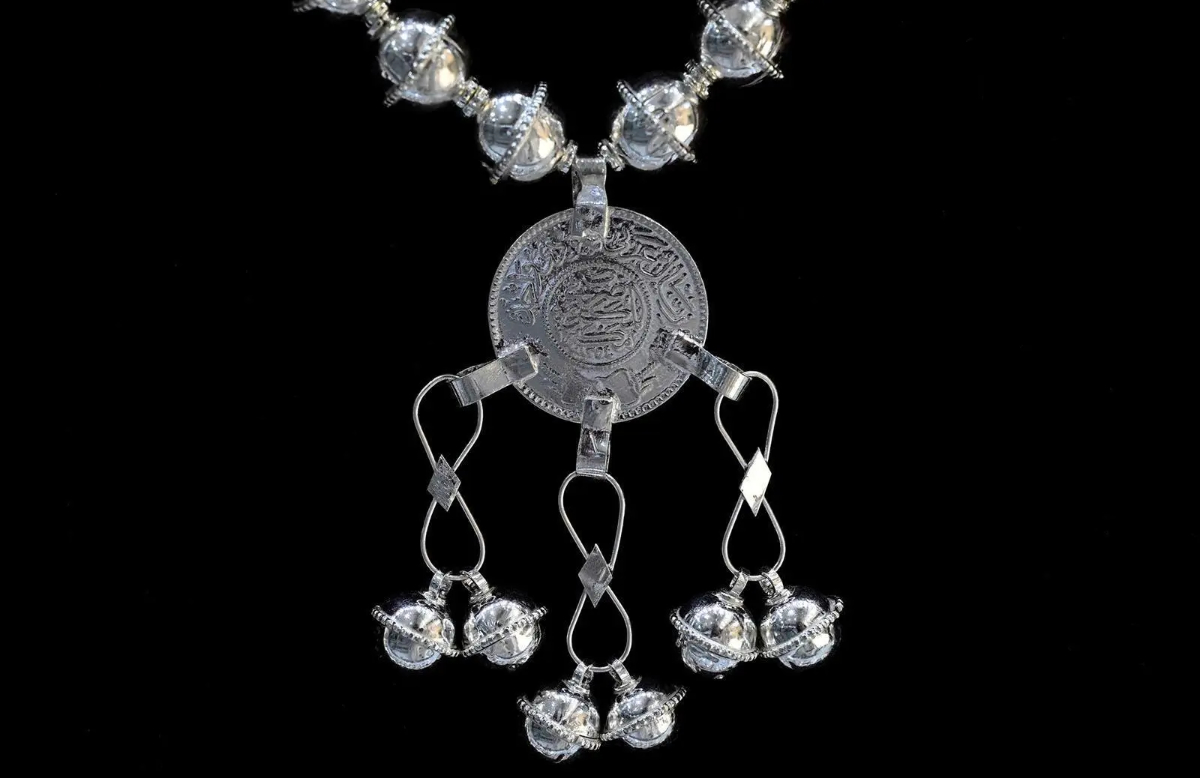
This includes learning the skills to shape, refine, and transform silver into appealing consumer products such as anklets, bracelets, rings, and necklace sets.
Silver-crafting specialist Maher Al-Awlaki noted that silver continues to attract strong demand across the Kingdom, particularly from visitors seeking traditional pieces that reflect Saudi heritage.
Silver crafting is a prominent traditional craft practiced by both men and women, and it often overlaps with gold and copper work. However, silver remains the most widely used and visually appealing material in jewelry making.
Maher Al-Awlaki
“Silver crafting is a prominent traditional craft practiced by both men and women, and it often overlaps with gold and copper work. However, silver remains the most widely used and visually appealing material in jewelry making,” he said.
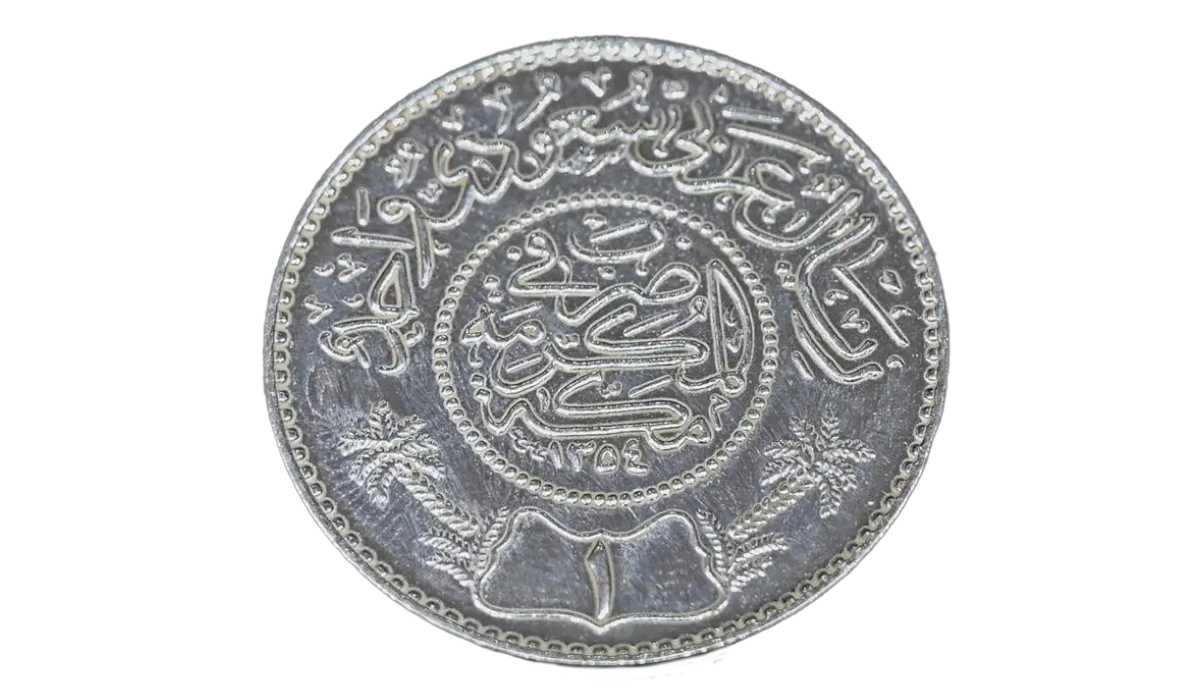
Young Saudi women are increasingly selecting silver accessories for weddings and national celebrations due to their distinctive and attractive appearance compared to contemporary jewelry, according to Al-Awlaki.
In conjunction with the “Year of Handicrafts 2025,” Al-Awlaki reports that numerous Saudi women have begun mastering silver craftsmanship through specialized training programs.
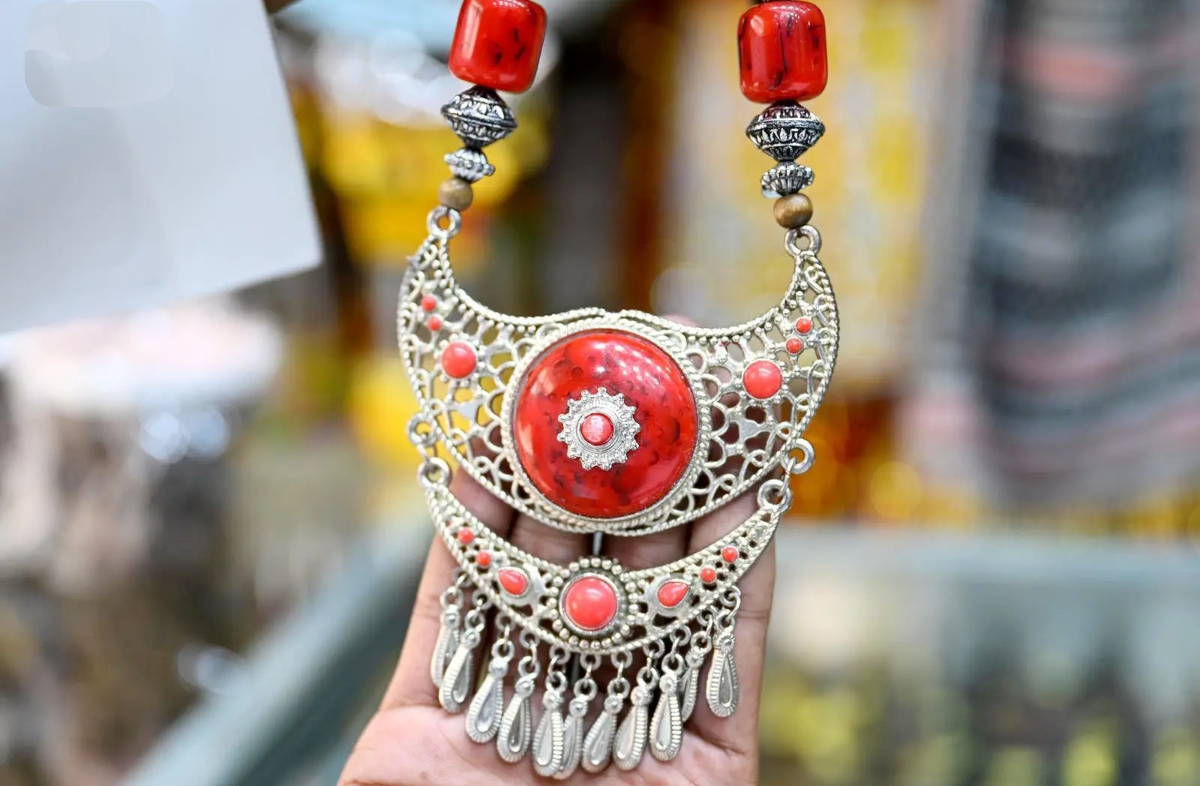
Leveraging their creativity, these artisans have successfully launched businesses to showcase their handcrafted pieces, which have been met with remarkable consumer interest.
The traditional craft has evolved with modern techniques, Al-Awlaki explained.
Artisans now employ machinery instead of manual methods, use gas flames rather than coal for soldering, and utilize prepared wax molds.
These innovations have streamlined production, allowing craftspeople to create multiple pieces efficiently while maintaining consistent sizing and design quality without the extensive time and effort previously required.
Saudi Arabia to take part in London Design Biennale

- The national Saudi pavilion tackles the water dispenser concept, which provides drinking water for free and symbolizes hospitality, a value deeply rooted in Saudi Arabia’s rich traditions
RIYADH: Saudi Arabia, represented by the Architecture and Design Commission and with the support of the Ministry of Culture, will be part of the 2025 London Design Biennale under the theme “Drinkable Water.”
The event will be held in Somerset House from June 5-29.
This year’s pavilion is handled by a team of designers who will use their expertise to present an exhibition that examines, challenges, and reimagines systems of water access and distribution, as well as the nature of our relationship with it.
The “Drinkable Water” concept, chosen by the organizers of the exhibition, is in line with the biennale’s theme for this year, which is “Surface Reflections,” as it explores how ideas are shaped through the interaction of inner experiences, external influences and personal history.
The national Saudi pavilion tackles the water dispenser concept, which provides drinking water for free and symbolizes hospitality, a value deeply rooted in Saudi Arabia’s rich traditions. These water dispensers are spread throughout the Kingdom, offering water to passersby, reflecting the ethics of generosity and kindness.
The water dispenser in the context of this exhibition does not only represent mere goodwill but also raises fundamental questions, such as: Who pays for the “free” water? How much does it really cost? And most importantly, if this burden falls on another party, won’t the cost, in one way or another, ultimately be borne by everyone?
The pavilion also stresses that water dispensers are often taken for granted and seen as mere public utilities; by reframing water as a subject of scrutiny and inquiry, we shift perceptions and uncover the unseen, turning thus these marginal structures into an active force in our daily lives.
CEO of the Architecture and Design Commission Dr. Sumaya Al-Sulaiman said: “Saudi Arabia’s return to the London Design Biennale constitutes a new promising chapter of our commitment to using design as an effective tool for dialogue and cultural exchange.”
She added: “We hope that our participation in the London Design Biennale will enable us to contribute to discussions on creativity, innovation, and systemic thinking.”
King Salman Global Academy launches Arabic equestrian glossary

- Scholars and enthusiasts can readily access precise information, while the dictionary also serves the vital purpose of cultural preservation
RIYADH: The King Salman Global Academy for Arabic Language in collaboration with the Equestrian Authority has launched an Arabic glossary of equestrian terms.
The resource targets enthusiasts and individuals interested in equestrianism and horses, aligning with the academy’s strategic goals to develop specialized glossaries that support the objectives of the Human Capability Development Program, a key component of Saudi Vision 2030.
Abdullah bin Saleh Al-Washmi, the academy's secretary-general, highlighted its role as Saudi Arabia’s primary Arabic language reference, with its glossary development efforts serving key sectors.
He said the significant cultural importance of equestrianism in the Kingdom had led to the development of the glossary, which includes terms for competitions, participation, horse descriptions, Arabian breed distinctions, colors, and ages.
The dictionary is an authoritative reference work, with a complete vocabulary of horsemanship.
Scholars and enthusiasts can readily access precise information, while the dictionary also serves the vital purpose of cultural preservation. By recording the rich terminology Arab horsemen have employed throughout history, the resource ensures that traditional equestrian knowledge and linguistic heritage will endure for generations to come, he added.
The academy’s objectives for the dictionary include bolstering academic research in Arabic linguistics and history by offering rich equestrian terminology, enhancing digital and print Arabic content with thorough horsemanship information, and establishing collaboration with the Equestrian Authority to continuously update the reference work with new definitions reflecting evolving needs in the field.
The initiative aligns with the academy’s broader mission to safeguard the integrity and identity of the Arabic language through various linguistic programs.
The organization continues to support Arabic in both spoken and written forms while facilitating Arabic language education within Saudi Arabia and internationally.
Saudi Arabia condemns Israeli closure orders for UNRWA schools in East Jerusalem

- Ministry of Foreign Affairs calls move blatant violation of international norms
RIYADH: Saudi Arabia on Friday strongly condemned Israel’s closure orders against six schools in East Jerusalem operated by the UN Relief and Works Agency for Palestine Refugees in the Near East, the Saudi Press Agency reported.
The Kingdom’s Ministry of Foreign Affairs called the move a blatant violation of international norms and a threat to humanitarian work.
The ministry said it “condemns in the strongest terms” the Israeli decision and reiterated the Kingdom’s categorical rejection of what it described as “continued intransigence and systematic targeting” of UNRWA by the Israeli occupation authorities.
The ministry also criticized what it called the international community’s silence in the face of repeated violations against the Palestinian people, warning that such silence “exacerbates the crisis and undermines the chances of achieving peace in the region.”
The UN agency said the closure orders were delivered following the forcible entry of Israeli security forces into six UNRWA-run schools, which have now been told to shut down within 30 days.
Philippe Lazzarini, UNRWA’s commissioner general, said this week that around 800 students were at risk of not completing the school year.
“These illegal closure orders come in the wake of Knesset legislation seeking to curtail UNRWA operations,” Lazzarini said, adding that the schools were protected under the privileges and immunities of the UN.


